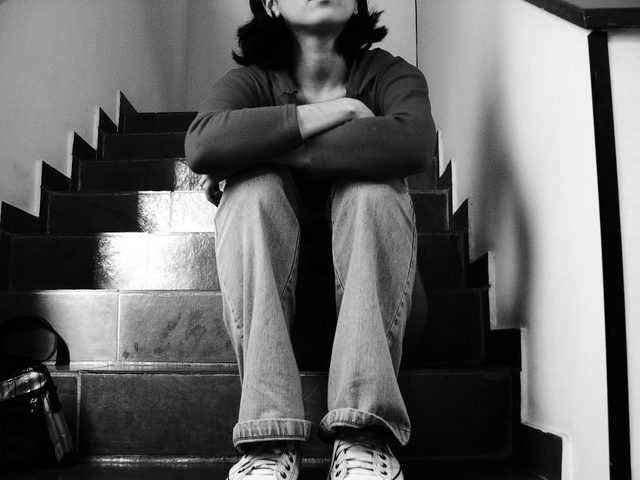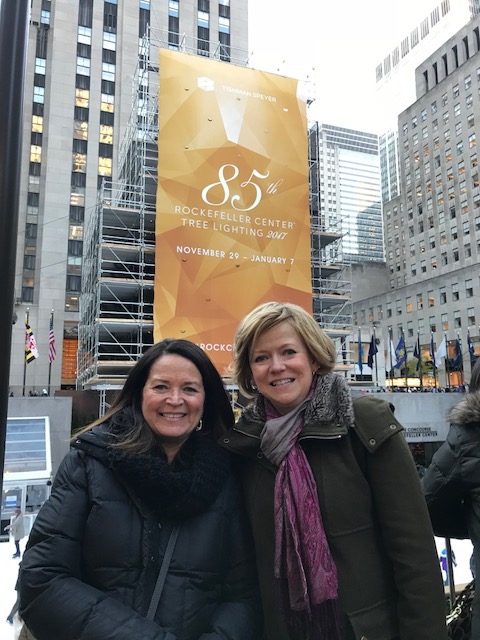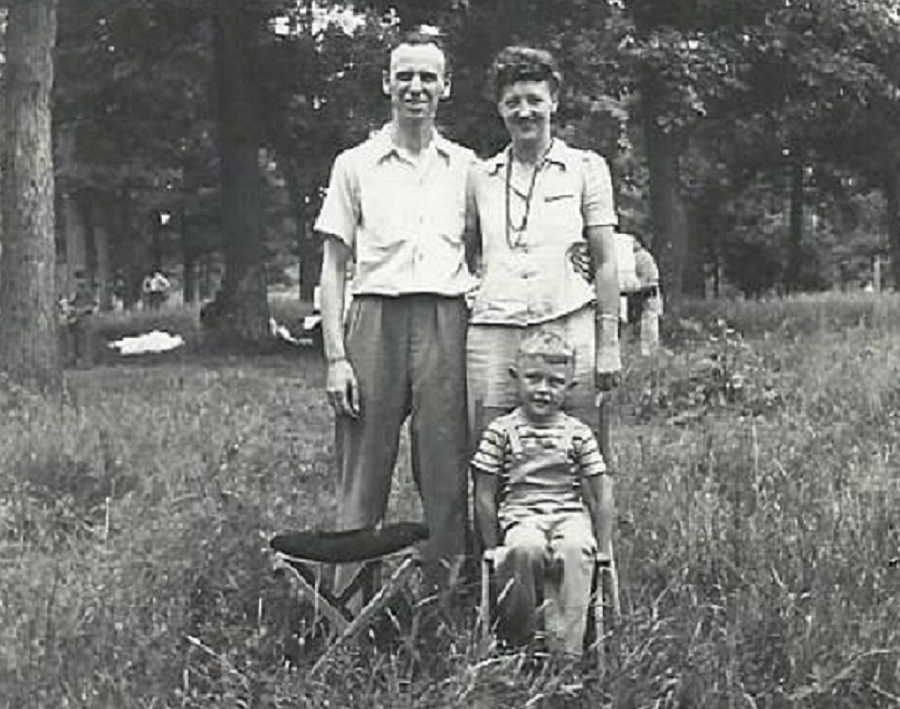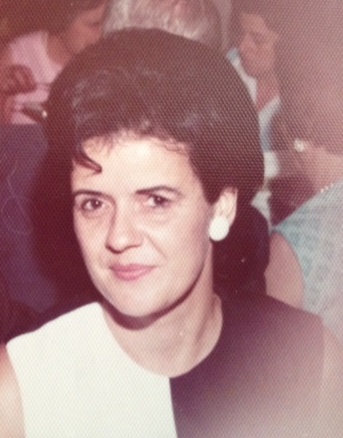It feels like a cruel joke. Finding out you are adopted late in life destroys part of your identity and turns your life upside down.
I found out I was adopted at age 38. My sister, Melissa, called me one evening and dropped the bombshell.
“You and I were both adopted,” Melissa said matter-of-factly.
I couldn’t have been more surprised if she’d informed me that zombies had invaded her home in the south suburbs of Chicago. Stunned silence. Words were not available to me. I sat there holding the receiver, trying to make sense of this news.
MeIissa suspected we had been adopted. One phone call to Gina confirmed it. Gina is like our cousin. Her parents, Virg and Mitch, were close friends with my parents, Claire and Bob. Aunt Virg and Uncle Mitch, as I called them, and Gina came to our home for dinner and we visited them occasionally.
Gina told Melissa that she had known for some time about her adoption and our adoptions.
It took 38 years for the truth to show up like an uninvited guest for dinner, an unwelcome stranger who had no intention of leaving.
Emotional Impact of Finding Out You Are Adopted
I felt stunned. Claire and Bob never so much as hinted at the possibility that I was not their biological daughter. In hindsight, I realized how obvious it was that I was adopted. How stupid was I for not having put two and two together. After all, Claire who was in her 50s when Melissa and I were born. She was too old to have biological children. Well, duh!
Of course I thought it was strange to have parents who were old enough to be my grandparents but I didn’t take that thought to its logical conclusion. It was odd that I had been born in Skokie, way north of Gage Park, but I never asked Bob and Claire why they had me at a hospital that was 26 miles away from home.
I wasn’t stupid, just trusting. Naïve. Without knowing it, I belonged to a secret club of secret adoptees, people born in the 1940s, ‘50s and ‘60s, during the era of closed adoptions. Surely other adopted kids attended classes with me at Tonti Elementary and Curie High schools in Chicago but we didn’t know we were adopted. Our adoptive parents upheld the unspoken, unwritten rule: “Whatever you do, don’t tell the kids they’re adopted.”
While 38 seemed embarrassingly old to learn I was adopted, other adoptees discovered their truth even later in life. Joanne Currao was 48 when she found out she was adopted. As if that wasn’t bad enough, Joanne’s brother, had known about their adoptions and never told her.
Finding out you are adopted late in life is unsettling. Author Mirah Riben contacted several late discovery adoptees who talked about the impact discovery had on their lives. Riben wrote an excellent article based on the comments from late discovery adoptees.
Being Adopted, an Uncomfortable Label for Me
Finding out you are adopted is weird. I didn’t want to dwell on what it meant to be adopted, to accept the reality that two other people were my parents. Claire and Bob were still my parents. I put my adoption in a box and shoved it aside.
Nothing changed in my life, the life that others could see. I took the subway to my editing job in Manhattan, arranged play dates for Jake, cooked meals for the three of us, walked the dog, cleaned the house and did all the other ordinary things that were part of my routine. Even if I had wanted to dwell on being adopted, my busy schedule would not have allowed it.
When I was a kid, I never felt like I had much in common with my parents. I loved Claire and Bob and they loved me but we didn’t think the same way. We didn’t share the same interests or talents. As far as personality, my mother and I could not have been more different. Claire thrived on drama. She often cried and bickered with Bob about stupid stuff. One time she poured dry cereal over Bob’s head, not to be funny, but to express her frustration. I wanted parents who were more like Mike and Carol Brady. Loud emotional displays made me uncomfortable. I retreated to my room.
Finding out I was adopted helped me make sense of the differences between us.
Adoptee Curiosity Builds
Years passed. On the outside, I looked like me, an older version, but inside, something had changed. Curiosity about my adoption grew. Questions about my biological parents and the circumstances surrounding my adoption sprang up but there was no one I could ask. Claire died in 1998, Bob passed away the following year. Gina knew nothing about my birth mother or father.
I called cousins on Claire’s side of the family. Of course they had known all along that I was adopted. My cousin Gloria could not believe that my parents had never told me. She and my cousin, Collette, had no idea who my natural parents were. Claire and Bob never revealed the details to their extended family.
After the state of Illinois unsealed birth certificates for adopted children, my husband, Tom, urged me to request a copy of my original birth certificate. Tom got the ball rolling. He handed me a check he had filled out for $15 to the Department of Public Health. Somewhat reluctantly, I mailed in the request. I felt apprehensive.
Discovering my Birth Parents’ Identities
My birth certificate revealed my birth mother was a 28-year-old married woman I didn’t know named Lillian, a Northbrook resident. My biological father’s name was missing. A search angel, Marilyn Waugh, helped me locate my half-sister, Michelle, my mother’s oldest daughter. Open and friendly, Michelle told me lots of stories about our family, including some horror stories. Unlike me, Michelle and her siblings grew up with a lot of freedom.
I wanted to know my biological father’s identity. Wanting to help me solve the mystery, Michelle tossed out the name of a guy with a common Irish surname, a man my mother had been friendly with. Michelle thought he could be the right guy but it was just a guess.
Determined to find out my biological father’s identity, I took two DNA tests. I found Stephanie, a woman who turned out to be my half-sister, my biological father’s oldest child. My natural parents, Lillian and Steve, were married but not to one another. They had an affair and created me. I’m sorry I never got to meet them before they passed away.
Adoptee Regrets, I’ve Had a Few
I regret not having learned the truth about my adoption sooner. Had I known before my parents had died, I could have approached Claire and Bob. I know my questions would have caused an epic shit storm, but I would have learned a few details about the first chapter of my life. Bob and Claire had their reasons for not disclosing my adoption. Perhaps they wanted to protect me from the stigma of adoption. Maybe they feared I would search for my bio parents. Perhaps the doctor who connected my parents to a newborn baby girl (me) at Skokie Valley Community Hospital advised them to keep mum about my adoption.
At first I blamed myself for being dumb. But with the passage of time, I have stopped blaming myself. Claire and Bob should have told me the truth.
The truth about my adoption felt unwelcome when it landed at my door so many years ago. I kicked the truth aside, unwilling to explore it but it sat there and waited for me. Once I opened my adoption box, I learned the facts about my original parents and their families. The truth didn’t come gift wrapped with a pretty bow on top, but it’s all I’ve got. I feel better, having found the missing pieces of my life.
I’d love to hear from other adoptees who stumbled onto their adoptions. Tell me your stories!









